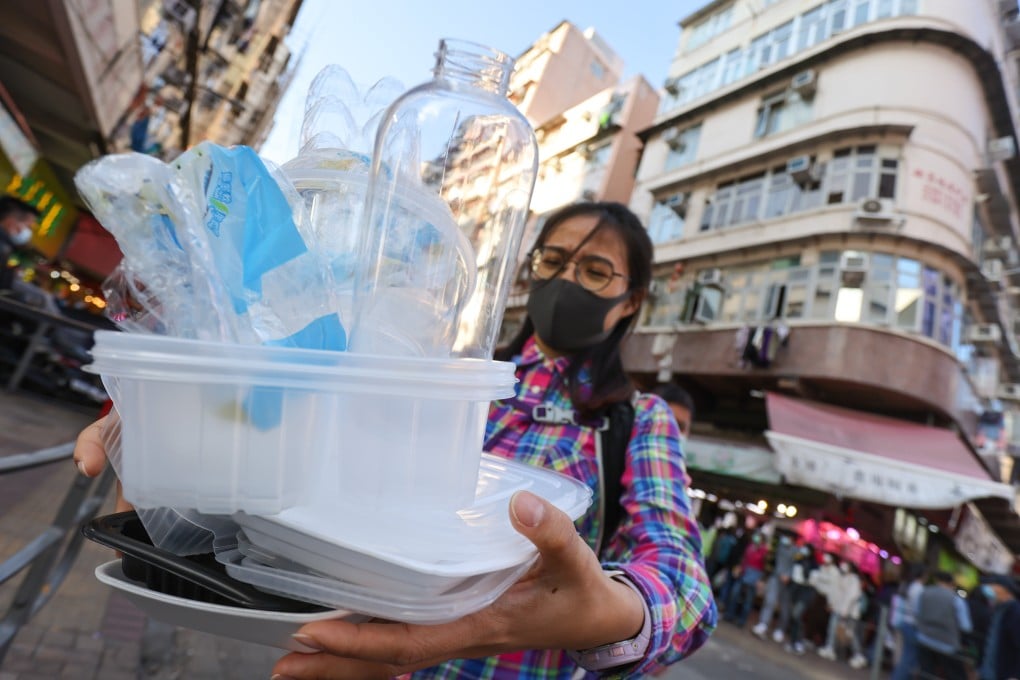Hongkongers struggle to recycle as authorities rush to remove kerbside bins to make way for new scheme
- Environmentalists warn of one-year hiatus where residents will find it difficult to handle recyclables before enforcement of waste charging scheme in 2023
- Recycling stations are in places which are ‘too remote’, making it a challenge for residents

Hong Kong social worker Yan Yuen, 34, struggles whenever she takes plastic bottles, toilet paper cores and takeaway boxes from her home in Sham Shui Po to the nearest recycling centre every three weeks.
It takes her 15 minutes to walk from her 180 sq ft flat to the collection station in Fu Cheong Estate, bypassing two wet markets, several garages, a row of industrial buildings and a bustling thoroughfare on her way to the inconspicuous recycling centre. No recycling bin is available along her route.
“I had trouble looking for this recycling station the first time I came here. Still, no sign shows the way,” she said. “I asked myself sometimes why I didn’t just trash them all, but my conscience didn’t allow me to do so.”

Yuen is among a group of 16 people who told the Post about their difficulties recycling in Hong Kong due to inadequate facilities. With authorities scrambling to phase out recycling bins, environmentalists have warned that the government will create at least a one-year hiatus where residents will find it difficult to handle their recyclables.
Government statistics show the amount of domestic waste generated has been on the rise since 2011, with each person creating 910 grams every day in 2020.
But the recycling rate dived to a 10-year low at the same time, with only 19 per cent of domestic waste recycled, amounting to about 1,300 tonnes per day, compared with around 24 per cent in 2016.